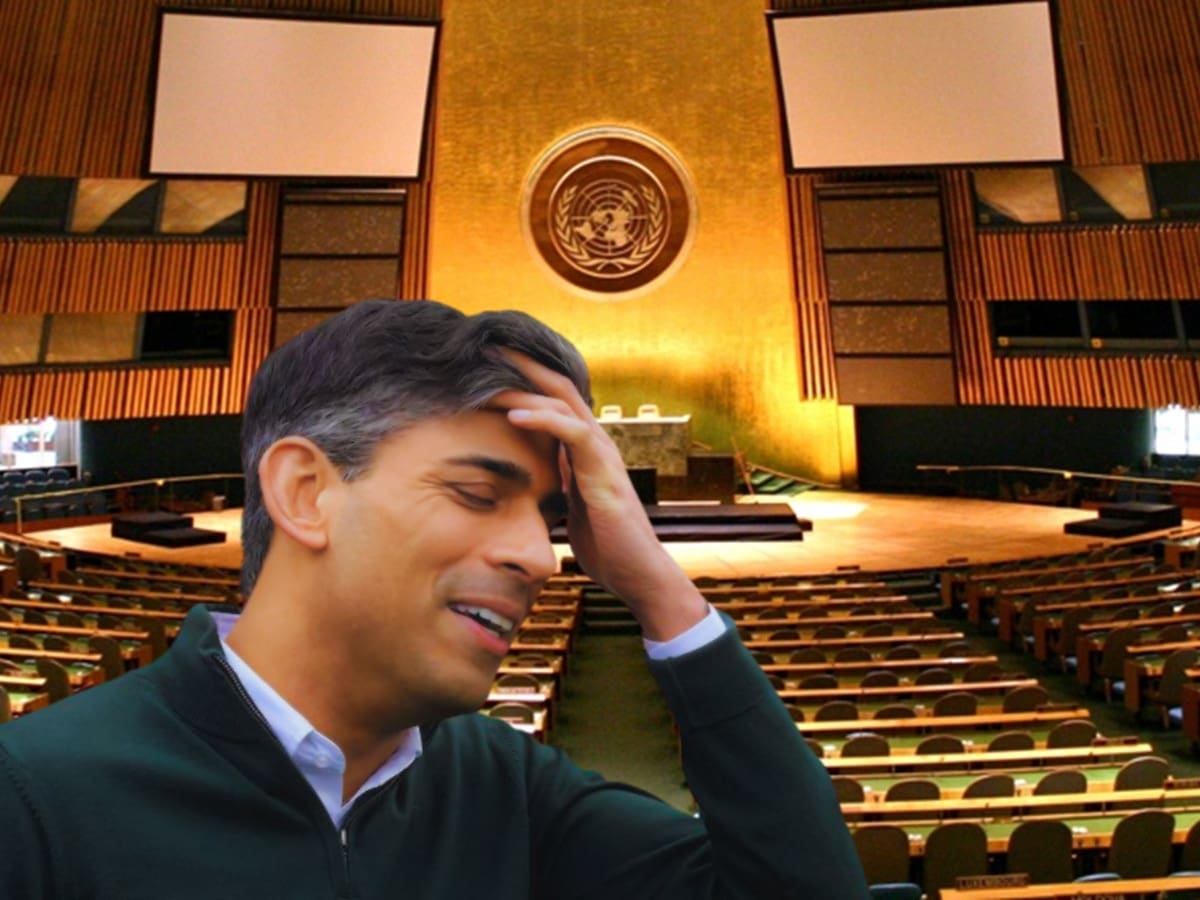The International Labour Organization (ILO) – the UN workers’ rights watchdog – has sounded the alarm over the UK government’s anti-strike, minimum service levels legislation – saying it could break workers’ rights rules.
It is the second time in five days a senior UN body has severely criticised the UK government – after the UN Committee on the Rights of Persons with Disabilities (UNCRPD) accused it of putting in place policies which have led to the deaths of chronically ill and disabled people. You can read the Canary‘s full analysis of that here.
Now, in uncharacteristically strong terms, the UN ILO has expressed “serious concerns” over the legislation and concluded that it potentially contravenes UN conventions.
The rebuke comes after the Trades Union Congress (TUC) reported the UK government to the watchdog over the Strikes (Minimum Service Levels) Act in September 2023.
The ILO says the committee is “especially concerned” by restrictions on the right to strike in the education and transport sectors.
UN: “serious concerns” over UK government anti-strike laws
The ILO’s intervention is significant as it could have weight in any legal action around use of the legislation. It said that it noted the new laws:
with serious concern [ILO bolding]. The Committee is especially concerned by the potentially wide-spread application of a series of new restrictions on workers and their organizations when considering industrial action in the transport and education sectors, accompanied by far-reaching consequences on them.
While recalling that in its previous comments it had indicated that recourse might be had to negotiated minimum services for transport and education, as appropriate, the Committee must nevertheless recall that a minimum service should meet at least two requirements:
(i) it must genuinely and exclusively be a minimum service, that is one which is limited to the operations which are strictly necessary to meet the basic needs of the population or the minimum requirements of the service, while maintaining the effectiveness of the pressure brought to bear;
and (ii) since this system restricts one of the essential means of pressure available to workers to defend their interests, their organizations should be able, if they so wish, to participate in defining such a service, along with employers and the public authorities.
Moreover, any disagreement on minimum services should be resolved, not by the government authorities, but by a joint or independent body which has the confidence of the parties. (see the 2012 General Survey on the fundamental Conventions, paragraphs 137 and 138). The Committee observes that in its current state the Strikes Act does not assure any of these elements.
The verdict comes just months after the UK government was reprimanded by the watchdog over its anti-union drive. Last summer, the ILO demanded ministers ensure that current and future union legislation respects international law.
It also comes just days after the UNCRPD slammed the Tories as well. One committee member said that the UNCRPD had been passed evidence of:
disabled people facing intolerable situations, even, death, while trying to comply with the eligibility requirements of the UK government’s benefits regimes, work capability assessments, and programmes administering support… What we have heard suggest a significant and shameful gap between the [CRPD] requirements and the lived experience of disabled people.
So, the TUC says this “hugely embarrassing” latest intervention from the ILO shows how the UK’s global reputation is “in tatters”. It also says it highlights how the UK government is “spinning mistruths” over its repeated claims that the ILO backed the UK’s new anti-strikes laws, which the ILO directly denied.
Widespread criticism – now including the UN
The Strikes (Minimum Service Levels) Act has been slammed by leading employment lawyers as making the UK an “international outlier” and breaching international laws.
The legislation gives ministers sweeping powers to impose strike restrictions in any service within health, education, fire, transport, border security and nuclear decommissioning – and has faced widespread criticism.
Regulations in border security, fire, rail, and ambulance services have all passed so far.
NHS Providers recently warned that the legislation could worsen industrial relations, harm patient care and lead to more disruption.
Mayors and council leaders – including Andy Burnham, Sadiq Khan, Steve Rotheram, and Tracy Brabin – have warned the new laws could lead to longer and more frequent strike action. They have said they will do everything in their power to not use work notices.
And Scottish and Welsh governments have both said the same.
The Joint Committee on Human Rights (JCHR) wrote to the government to express “serious concerns” about its anti-strike legislation breaching international law.
The EHRC also warned that the legislation could see all striking workers in affected sectors lose their unfair dismissal protection, as whole strikes could be deemed illegal.
The Act has also faced a barrage of criticism from ACAS, civil liberties organisations, the House of Lords Delegated Powers and Regulatory Reform Committee, race and gender equalities groups, employment rights lawyers, and politicians around the world.
‘Undemocratic, unworkable, and likely illegal’
TUC general secretary Paul Nowak said
The UK’s global reputation as a country that respects workers’ rights is in tatters.
This hugely embarrassing verdict on the Conservative government’s flagship anti-strike legislation comes just months after the UN workers’ rights watchdog reprimanded the UK over its anti-union drive.
To make matters worse, ministers have been caught spinning mistruths after repeatedly claiming that the ILO backed their spiteful anti-strikes laws.
The ILO joins a range of respected organisations who have been queuing up to criticise this legislation – from rights groups to lawyers to politicians.
These new laws are undemocratic, unworkable and are likely illegal. And they will do nothing to resolve industrial disputes.
Make no mistake. This latest attack on the right to strike drags us further away from democratic norms.
Our message to government is loud and clear. We will fight these draconian laws all the way. And we won’t rest until these laws are off the statute book.
Featured image via the US Embassy and Sky News – screengrab




